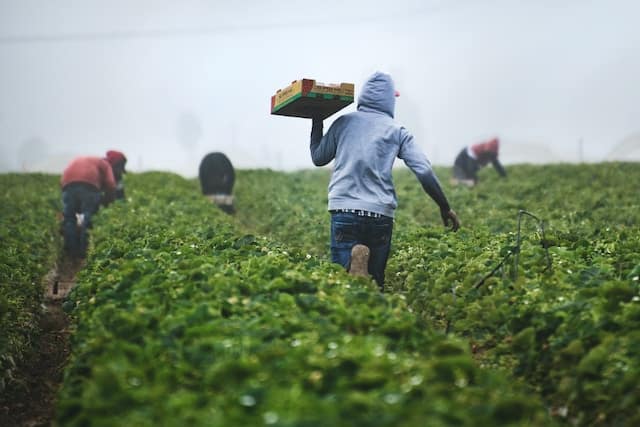How to experience traditional British farming practices in rural areas?

Exploring traditional British farming practices offers a glimpse into the rich agricultural heritage and the rural life of the United Kingdom. This journey through the pastoral landscapes not only enhances your understanding of farming but also connects you with the essence of British rural culture. In this article, we will delve into the various ways you can immerse yourself in these farming traditions, offering you a comprehensive guide to experiencing the timeless practices that have shaped British agriculture.
Understanding the Agricultural Revolution's Legacy
Traditional British farming practices are deeply rooted in the history of the Agricultural Revolution. This significant period, which began in the 18th century, transformed farming methods and the rural landscape of England. The revolution introduced new agricultural practices such as crop rotation, which improved soil fertility and increased food production. These practices laid the foundation for modern farming and are still evident in rural areas today.
A découvrir également : What are the essential tips for visiting the historic cathedrals in England?
The Agricultural Revolution also led to the enclosure movement, where common lands were consolidated into individually owned plots. This shift not only changed the rural landscape but also affected the livelihoods of many rural people, leading to significant social and economic changes. As you explore traditional farming practices, you will encounter the remnants of these historical changes, providing a deeper understanding of the rural history of the United Kingdom.
Visiting Working Farms and Rural Areas
To truly experience traditional British farming, visiting working farms in rural areas is essential. Many farms in the United Kingdom open their gates to visitors, offering a firsthand look at daily farming activities. These visits provide an opportunity to see how historical farming practices are integrated with modern techniques.
A découvrir également : How can you explore the history of British military through guided tours in London?
In rural England, regions such as the Cotswolds, Yorkshire Dales, and the Lake District are famous for their picturesque landscapes and well-preserved traditional farms. You can witness practices like crop rotation, animal husbandry, and the cultivation of high nature value crops like peas and beans. These areas offer guided tours, farm stays, and hands-on experiences that allow you to participate in activities such as milking cows, feeding animals, and planting crops.
Farm stays are particularly popular, providing an immersive experience where you can live on the farm and engage in daily chores alongside the farmers. This not only offers a practical understanding of farming practices but also a chance to enjoy the serene beauty of the countryside.
Exploring the Role of Climate Change in Modern Farming
As you delve into traditional farming practices, it is crucial to understand the impact of climate change on modern agriculture. Farmers in the United Kingdom and other European countries are increasingly adapting their practices to cope with changing weather patterns, shifting growing seasons, and the need for sustainable farming.
Climate change has prompted a reevaluation of traditional practices and the introduction of innovative solutions. For example, crop rotation is now used not only to maintain soil fertility but also to combat pests and diseases that thrive in changing climates. Farmers are also adopting sustainable agricultural practices such as organic farming, reduced tillage, and agroforestry to mitigate the impact of climate change and promote environmental sustainability.
By exploring these modern adaptations, you can gain insights into how traditional practices are evolving to meet contemporary challenges. This understanding highlights the resilience and ingenuity of farmers in preserving their heritage while ensuring food security for future generations.
Learning from Farmers and Agricultural Scholars
Engaging with farmers and agricultural scholars is an invaluable way to deepen your knowledge of traditional British farming practices. Farmers possess a wealth of practical experience and knowledge passed down through generations, while scholars provide a broader historical and scientific perspective on agricultural practices.
Many farms offer educational programs, workshops, and seminars where you can learn directly from experienced farmers. These programs cover a wide range of topics, including soil management, animal welfare, crop cultivation, and sustainable farming practices. Engaging in these activities provides a hands-on learning experience that complements theoretical knowledge.
Additionally, resources like Google Scholar offer access to academic research and publications on agricultural topics. By exploring these materials, you can gain a comprehensive understanding of the historical, environmental, and economic aspects of traditional farming. Combining practical experience with academic insights enriches your overall understanding of British farming practices.
The Future of Traditional Farming in the United Kingdom
The future of traditional farming in the United Kingdom is shaped by various factors, including technological advancements, policy changes, and societal shifts. As we look ahead, it is essential to consider how these factors will influence the preservation and evolution of traditional farming practices.
Technological innovations, such as precision agriculture and advanced machinery, are transforming farming operations, making them more efficient and sustainable. These advancements enable farmers to optimize resource use, reduce waste, and improve crop yields. However, integrating these technologies with traditional practices requires careful consideration to ensure that the cultural heritage and environmental benefits are maintained.
Policy changes, particularly those related to rural affairs and animal welfare, also play a significant role in shaping the future of farming. Government initiatives and subsidies aimed at promoting sustainable agriculture, biodiversity conservation, and rural development support the continued practice of traditional farming methods. Understanding these policies helps you appreciate the broader context within which farmers operate.
Societal shifts, including the growing interest in local and organic food, are driving demand for traditional farming products. Consumers are increasingly valuing the quality, sustainability, and traceability of their food, encouraging farmers to maintain traditional practices that align with these preferences.
Experiencing traditional British farming practices in rural areas offers a profound connection to the agricultural heritage and rural life of the United Kingdom. By visiting working farms, engaging with farmers, exploring the impact of climate change, and learning from agricultural scholars, you gain a comprehensive understanding of these timeless practices.
As you embark on this journey, you will witness the resilience and ingenuity of farmers who preserve their heritage while adapting to contemporary challenges. Whether through farm stays, educational programs, or exploring picturesque rural landscapes, you will find that traditional British farming practices continue to thrive, offering a unique and enriching experience.
In conclusion, immersing yourself in traditional British farming practices provides not only a window into the past but also a glimpse of the future of sustainable and resilient agriculture. This experience underscores the importance of preserving our agricultural heritage while embracing innovations that ensure food security and environmental sustainability for generations to come.
